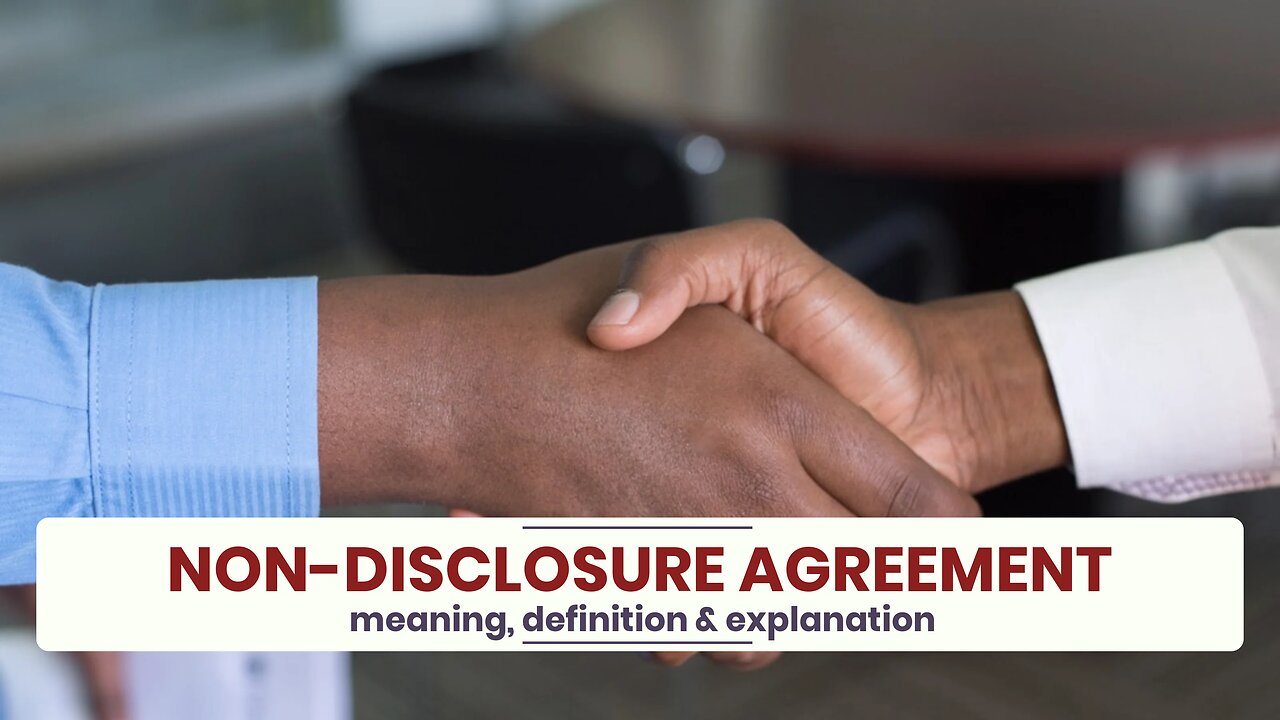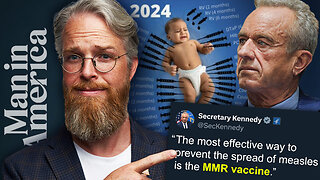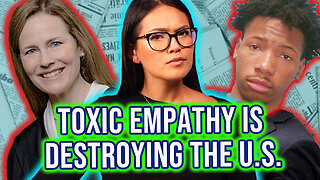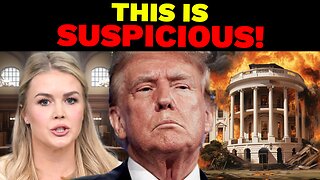Premium Only Content

What is NON-DISCLOSURE AGREEMENT?
✪✪✪✪✪
http://www.theaudiopedia.com
✪✪✪✪✪
What does NON-DISCLOSURE AGREEMENT mean? NON-DISCLOSURE AGREEMENT meaning - NON-DISCLOSURE AGREEMENT definition - NON-DISCLOSURE AGREEMENT explanation. What is the meaning of NON-DISCLOSURE AGREEMENT? What is the definition of NON-DISCLOSURE AGREEMENT? What does NON-DISCLOSURE AGREEMENT stand for? What is NON-DISCLOSURE AGREEMENT meaning? What is NON-DISCLOSURE AGREEMENT definition?
A Non-disclosure agreement (NDA), also known as a confidentiality agreement (CA), confidential disclosure agreement (CDA), proprietary information agreement (PIA), or secrecy agreement (SA), is a legal contract between at least two parties that outlines confidential material, knowledge, or information that the parties wish to share with one another for certain purposes, but wish to restrict access to or by third parties. It is a contract through which the parties agree not to disclose information covered by the agreement. An NDA creates a confidential relationship between the parties to protect any type of confidential and proprietary information or trade secrets. As such, an NDA protects non-public business information.
NDAs are commonly signed when two companies, individuals, or other entities (such as partnerships, societies, etc.) are considering doing business and need to understand the processes used in each other's business for the purpose of evaluating the potential business relationship. NDAs can be "mutual", meaning both parties are restricted in their use of the materials provided, or they can restrict the use of material by a single party.
It is also possible for an employee to sign an NDA or NDA-like agreement with an employer. In fact, some employment agreements will include a clause restricting employees' use and dissemination of company-owned confidential information.
A non-disclosure agreement (NDA) may be classified as unilateral, bilateral, or multilateral.
A unilateral NDA (sometimes referred to as a one-way NDA) involves two parties where only one party (i.e., the disclosing party) anticipates disclosing certain information to the other party (i.e., the receiving party) and requires that the information be protected from further disclosure for some reason (e.g., maintaining the secrecy necessary to satisfy patent laws or legal protection for trade secrets, limiting disclosure of information prior to issuing a press release for a major announcement, or simply ensuring that a receiving party does not use or disclose information without compensating the disclosing party).
A bilateral NDA (sometimes referred to as a mutual NDA or a two-way NDA) involves two parties where both parties anticipate disclosing information to one another that each intends to protect from further disclosure. This type of NDA is common when businesses are considering some kind of joint venture or merger.
When presented with a unilateral NDA, some parties may insist upon a bilateral NDA, even though they anticipate that only one of the parties will disclose information under the NDA. This approach is intended to incentivize the drafter to make the provisions in the NDA more "fair and balanced" by introducing the possibility that a receiving party could later become a disclosing party or vice versa, which is not an entirely uncommon occurrence.
A multilateral NDA involves three or more parties where at least one of the parties anticipates disclosing information to the other parties and requires that the information be protected from further disclosure. This type of NDA eliminates the need for separate unilateral or bilateral NDAs between only two parties. E.g., a single multiparty NDA entered into by three parties who each intend to disclose information to the other two parties could be used in place of three separate bilateral NDAs between the first and second parties, second and third parties, and third and first parties.
A multilateral NDA can be advantageous because the parties involved review, execute, and implement just one agreement. However, this advantage can be offset by more complex negotiations that may be required for the parties involved to reach a unanimous consensus on a multilateral agreement.
-
 1:52
1:52
The Audiopedia
9 months agoWhat is EXECUTIVE DIRECTOR?
531 -
 22:07
22:07
JasminLaine
11 hours agoWatch CBC Realize They Can’t Save Carney—Poilievre Calls Him a “Political Grifter”
1.24K12 -
 13:19
13:19
Bearing
20 hours agoAustralian Prime Minister FALLS OFF STAGE Then Denies it Happened 🤣😂
2.24K40 -
 2:44:48
2:44:48
Price of Reason
12 hours agoTrump Tariff Mania CONTINUES! China vs Hollywood! Bezos Under FIRE! Sweet Baby Inc FAILS Again!
31K4 -
 2:39:40
2:39:40
TimcastIRL
8 hours agoTrump To Impose 104% TARIFF On China At Midnight In NUCLEAR BOMB On Global Trade | Timcast IRL
248K120 -
 1:54:27
1:54:27
Glenn Greenwald
11 hours agoAs Tariffs Dominate News, Trump and Netanyahu Make Increasingly Militaristic Threats; Plus: Mixed Supreme Court Ruling on Deportation Powers | SYSTEM UPDATE #435
162K170 -
 1:01:27
1:01:27
Man in America
11 hours agoMAHA Feels Betrayed by RFK Jr.—What's REALLY Happening? w/ Sayer Ji
72.6K51 -
 1:15:15
1:15:15
Savanah Hernandez
9 hours agoToxic Empathy Is Ruining America
55.8K49 -
 1:39
1:39
Stephen Gardner
12 hours ago🚨BREAKING: Karoline Leavitt MAKES STUNNING announcement about Trump's Assassin!
66.4K22 -
 1:32:10
1:32:10
Joker Effect
7 hours agoRumble is about to get a new genre!! Are you ready to take it on? Time to fight fire with fire!
60.2K8